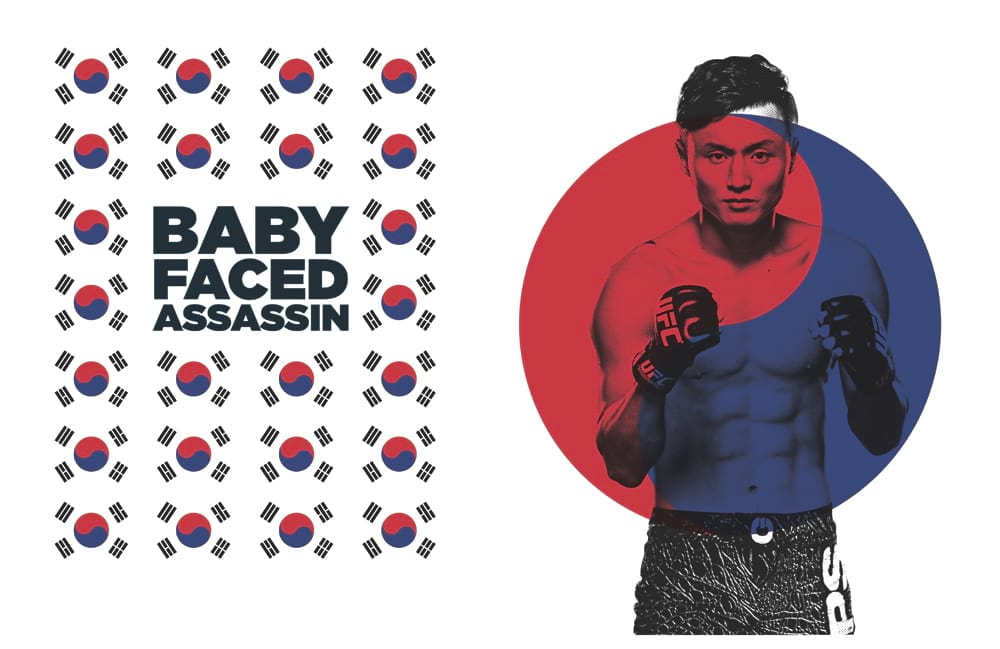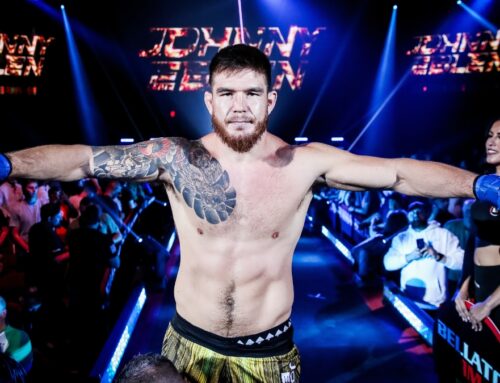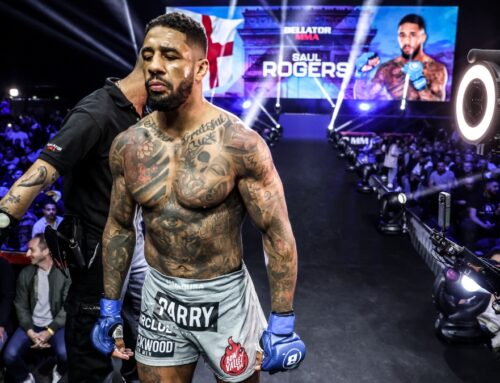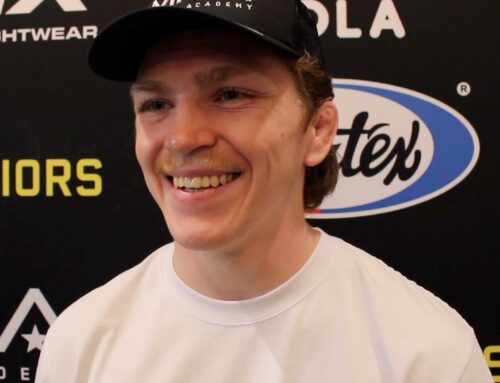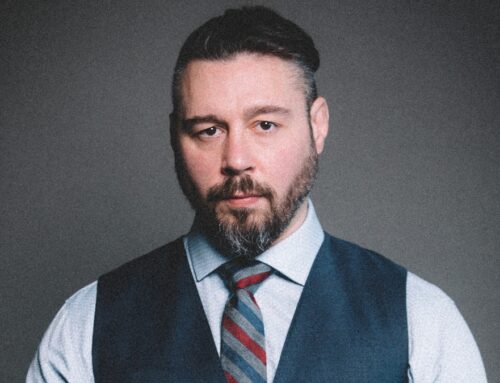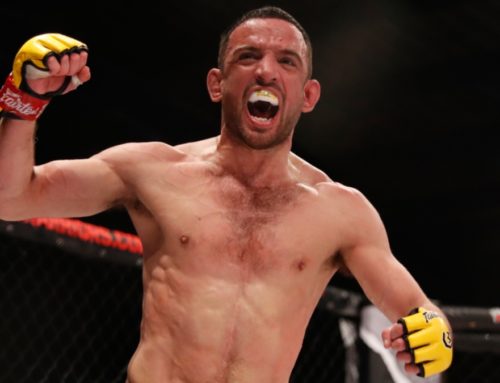By Nick Peet
After Doo Ho Choi’s first three fights in the UFC, he had become a must-watch attraction. Though the beginning of his Octagon career was riddled with injuries, he hit three consecutive opening-round knockouts had fight fans the world over salivating for more. Just who was this baby-faced assassin, and how far can he go?
By UFC 206 in December, expectation around Choi’s frightening potential had reached fever pitch. Standing across the cage from the number-four featherweight contender, Cub Swanson, in Las Vegas, the fans were chanting the South Korean’s name louder than anyone else. Talent, it seems, knows no boundaries.
What followed was a three-round war that will define both fighters’ legacies. Swanson was on song, providing a vintage performance when his back was against the wall. While Choi proved he could hang and bang with the big dogs by taking everything Swanson had to offer yet still plow forward to land bombs of his own.
The only disappointment was that there had to be a winner, but magnanimous in defeat, Choi confessed he was a Swanson fan. That was one of the reasons why he’d called out the perennial top-ranked contender.
‘The Korean Superboy’ has come a long way in just seven years. Swanson was already 14-3 and rocking WEC fight cards before his future opponent had even made his pro debut.
“I only started training in 2007, just as a way to keep fit and stay active,” Choi recalls. “But doing exercise and doing some amateur fights I slowly started to feel myself more as a real fighter.”
Inspired by ‘The Korean Zombie’ Chan Sung Jung, Choi – like Korean MMA – progressed quickly.
“Formerly in Korea, we lacked resources and information in terms of wrestling and ground fighting. But now we have come a long way. But thanks to the Korean fighters who made it to the top leagues, we have the date for all the fighters and the fighters now everyone. We have learned and we have taught each other.”
Despite becoming a fan favorite with Japanese promotion Deep, the 25-year old admits fighting the Octagon wasn’t just a goal, more his destiny. “I knew sooner or later I would fight in the UFC,” he says. “It has been something I’ve been working towards for a long time. So when the chance came I wasn’t particularly surprised or happy because it’s now, in the UFC, where my career has finally begun.”
Choi finally debuted against Mexican Juan Manuel Puig on the undercard of an event Swanson headlined in Texas. It took the Korean, who looks like he’s still in high school, just 18 seconds to make his mark.
“Chan Sung Jung told me how fighting in the Octagon would be completely different from anything I’ve experienced before. I didn’t believe him at the time. I thought because I had fought in many places my experience in the rings and events in Japan, along with high-level training, that I would adapt easily to the Octagon. But I now know that he was right. Nothing compares to the UFC.”
Although it’s not like Choi’s performances showed it. While injuries stalled his second outing, he finally stepped in against Sam Sicilia when the UFC landed in South Korea for the first time in November 2015. Opening up the main card, Choi stole the show with a 93-second knockout that earned him his first of three UFC bonuses in consecutive fights.
“I’m always looking to finish the fight. That’s all I come here to do,” says the heavy-handed Team MAD poster boy. “I have a great team behind me and I’m here (in the UFC) to knock out everybody.”
Legit BJJ black belt Thiago Tavares was next. Overmatched on the ground perhaps, Choi was also giving away a ton of experience to the Brazilian, who stepped into the TUF 23 Finale Octagon in the summer for his 18th UFC appearance. Hot off a sub-40-second submission of Clay Guida too, Tavares was in rare form. But his young adversary still came into the fight as the favorite.
Choi did what he does best. Drove the pace and let his heavy hands go. He even took Tavares down en route to another $50,000 knockout victory. “I knew my jiu-jitsu isn’t a strong as Tavares’ is, but my grappling is very strong and that’s why I was able to take him down.”
The finish was chilling. “Everybody was saying after that it was two punches that landed, but it was actually on one punch that finished the fight. The first punch was just a range-finding punch. But knocking people out is easy, you just have to hit them right on the correct spot – on the point of the nose.”
Three fights in and Choi had quickly discovered his power had translated from Asia to North America seamlessly. So he dared to be great, called out one of his favorite fighters, and took a shot at a spot in the top 10. Brave for any fighter after just three UFC fights – never mind one in the stacked 145lb class.
The three rounds the pair shared in Toronto typified the very best of both men. Called out by the prospect, Swanson had fire in his belly. He fought like a world title was on the line. Choi, brimming with confidence and with an desire to prove Asian fighters are as tough as any others, fought through a hailstorm of haymakers thanks to an unwavering will to survive and claim victory.
“I really believed I was going to win,” a desolate Choi said afterwards. “My corner team and myself, we are both big fans of Cub Swanson. I really wanted to fight him and I really thought I was going to win.”
And while the judges scored in favor of ‘Killer’ Cub, there’s not a fight fan on the planet that didn’t also celebrate Doo Ho Choi as a winner on December 10th. Despite the three electrifying knockouts that preceded his first UFC loss, the Superboy arrived in dramatic style in Canada. And it’s going to be fascinating to see what comes next.
“If this is what losing feels like then I am never going to feel like this again,” he promises.
That should come as a warning to the rest of the UFC featherweight division.
*** This feature originally appeared in the March 2017 issue of Fighters Only ***

